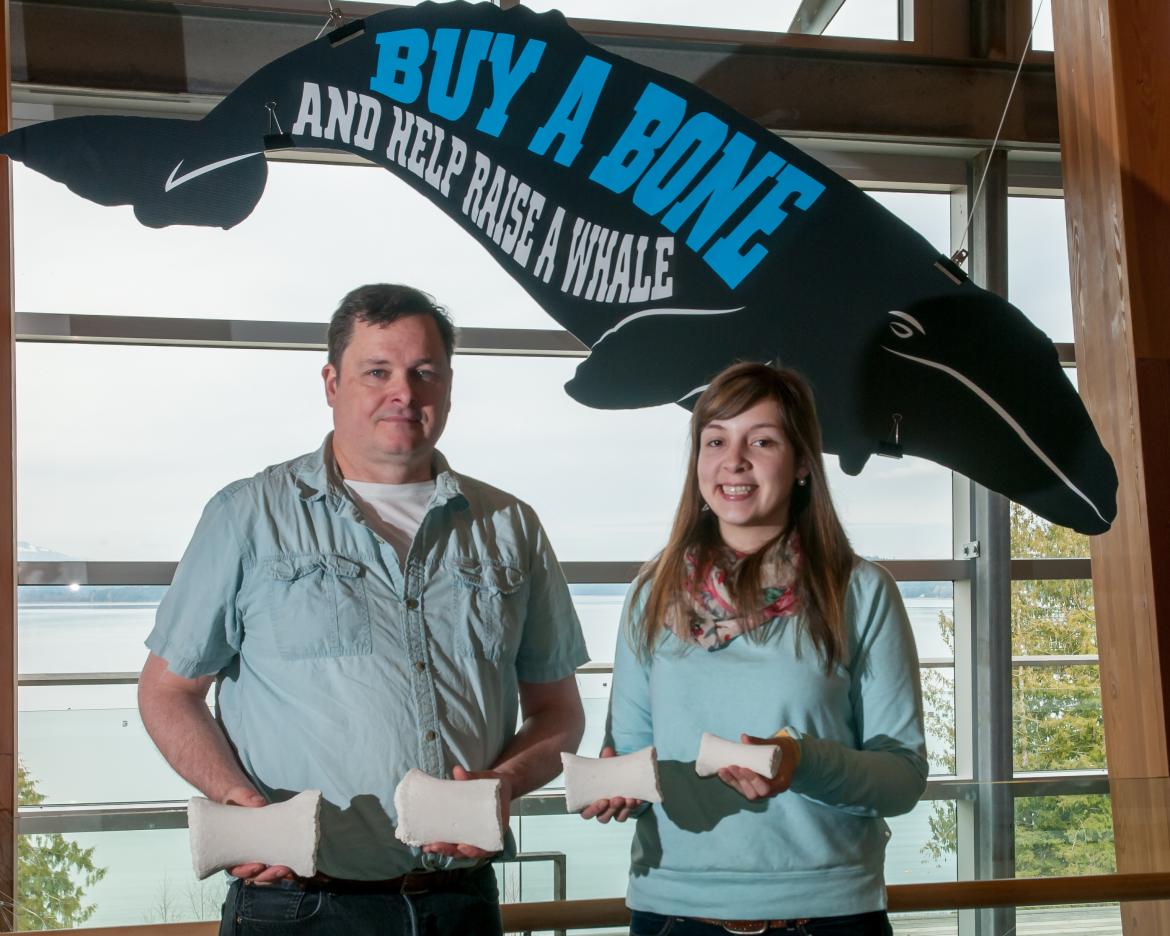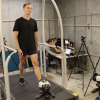
March 31, 2014 - 5:15am
Vancouver Island University is launching an innovative ‘buy a bone’ campaign to raise a Grey Whale and inspire generations.
The University needs to raise approximately $75,000 to create a world class Grey Whale skeleton exhibit at the Deep Bay Marine Field Station in Bowser. The Deep Bay Marine Field Station is a key research facility for VIU with a mandate for public education around sustainability in coastal communities.
“The whale skeleton, which will hang from the ceiling, will be a highlight of the Deep Bay Marine Field Station’s public education program, and inspire and educate community members for decades to come,” says Manager Brian Kingzett. “We need the community’s help to make it happen.”
The bones come from the remains of a 10-metre long, 20-plus tonne Grey Whale that washed up on the beach in Sooke, at the south end of Vancouver Island in April 2010.
Concerned that it was being treated with disrespect, Scia'new First Nation worked with Fisheries and Oceans Canada and VIU to bury the whale on their land with hope that it could be used in the future for an educational purpose.
After four years of natural decomposition, the whale skeleton is ready to be recovered and prepared for display. Kingzett estimates it will cost approximately $75,000 to properly recover the skeleton, prepare the bones and create a permanent exhibit.
VIU is working with a Saltspring Island based company called Cetacea to help with the bone articulation process.
“Cetacea is gaining an international reputation for the quality of their articulations that feature their subjects in a life like pose,” says Kingzett. “They are best known for articulating a Blue Whale, the largest species in the world.”
“It’s a combination of science, engineering and art,” Kingzett adds. “Intensive cleaning processes are required and oils must be removed from the bones before they are assembled into a natural looking display.”
The completed skeleton will weigh approximately 2,000 pounds. Kingzett says the project will present “considerable opportunities for volunteers and students during the process” and is intended to be a community project.
Kingzett encourages the public to support the project by purchasing a bone to honour the memory of a loved one, or to leave a legacy for future generations. Of 145 bones up for grabs, Kingzett has already sold 19.
Donors will receive a certificate of "bone ownership" signed by Dr. Ralph Nilson, VIU President & Vice-Chancellor, and an invitation to the exhibit preview party. All purchases and contributions over $20 are tax deductible.
Learn more about Deep Bay Marine Field Station.
-30-
About the Deep Bay Marine Field Station:
With touch tanks and a large public aquaria teeming with sea life from BC waters, the Deep Bay Marine Field Station is fast becoming a popular tourist destination for the entire Island.
The facility is open to the public daily between 10 am and 4 pm, and staff are available to answer questions. With stunning views of Baynes Sound, the Field Station is also a popular venue for conferences, workshops, weddings, birthday parties, school tours and other special events.
Key facts about Grey Whales:
1. Grey Whales were almost hunted to extinction.
2. Today, there may be up to 23,000 Grey Whales travelling through BC waters during the spring on their annual migration.
3. Each year, Grey Whales may travel as much as 22, 000 kilometres from Alaska to breed in the lagoons of Mexico.
4. Grey Whales travel along the coast and feed in shallow waters bringing them in close contact with humans.
5. Approximately 250 whales spend the summer around Vancouver Island every year.
Media Contact
Janina Stajic, Manager, Communications & Public Engagement, Vancouver Island University P: 250.740.6288 C: 250.618.2360 E: Communications@viu.ca Twitter: @VIUNews
Tags: Research






